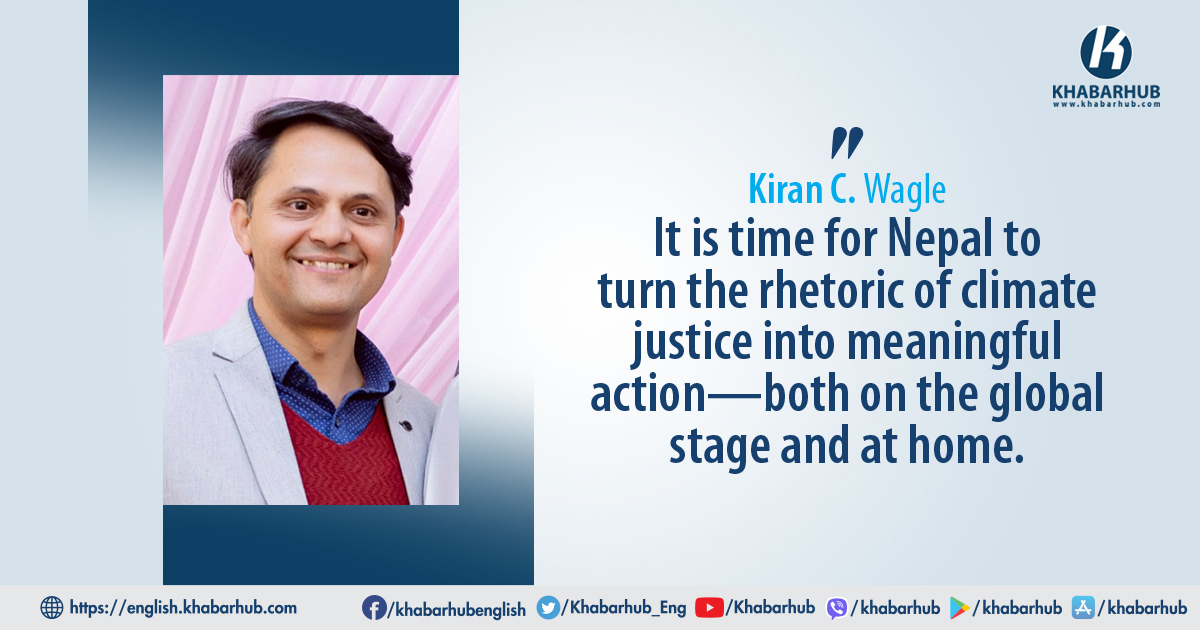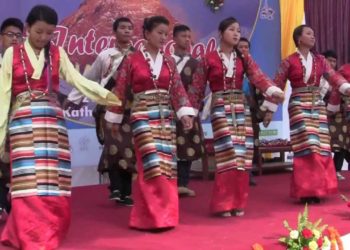Nepal, like many countries in the Himalayas, is on the front lines of climate change.
Despite its minimal contribution to global carbon emissions, the nation is already experiencing increasingly severe climate-induced disasters.
Flash floods, Glacial Lake Outburst Floods (GLOFs), and erratic rainfall patterns have devastated communities in recent years.
Notable examples include the Melamchi flood of June 2021, the Kagbeni flash flood of August 2023, and the Thame GLOF of August 2024.
These events starkly highlight the urgency of addressing loss and damage caused by climate change—an issue that requires a comprehensive, human rights-based approach.
The Growing Threat of GLOFs and Flash Floods
The frequency of flash floods and GLOFs in Nepal is deeply concerning. GLOF events have been increasing in recent years.
As the world warms, adaptation options become more constrained, making remediation a critical element of climate justice. In this context, the establishment of the Loss and Damage Fund at COP28—part of the 28th UN Climate Change Conference of the Parties—is a step in the right direction.
These floods, often triggered by rapidly melting glaciers, pose a direct threat to local communities.
They destroy homes, agricultural lands, and critical infrastructure; displace families; and devastate ecosystems. The long-term socio-economic impact is significant, with entire livelihoods disrupted.
Flash floods are not the only climate-related disasters that Nepal faces. Unprecedented rainfall, landslides, and floods are becoming more common, with far-reaching consequences.
These events disproportionately affect Nepal’s poorest and most marginalized populations, who contribute little to global greenhouse gas emissions.
The economic losses from such events are staggering. The increasing frequency and intensity of these disasters have caused immense infrastructure damage, displacement, and loss of cultural heritage.
Furthermore, the degradation of ecosystems exacerbates the problem, undermining the long-term resilience of affected communities.
These impacts are not only environmental but also social and economic, deeply affecting Nepal’s national development.
A Global Justice Issue
The loss and damage experienced by countries like Nepal—those least responsible for global warming—are inherently unjust.
Climate change is a global problem, yet it disproportionately impacts vulnerable populations in developing nations.
These communities have contributed little to the greenhouse gas emissions driving the climate crisis but are among the hardest hit.
The United Nations has acknowledged this injustice. In May 2024, the International Tribunal for the Law of the Sea’s Advisory Opinion declared that climate change is an existential threat to humanity, raising serious human rights concerns.
Similarly, the UN Special Rapporteur on the Right to Development, Surya Deva, has framed climate-related loss and damage as a human rights issue.
In his report to the UN General Assembly, Deva emphasized that climate change-related losses—particularly in developing countries—undermine the right to development for vulnerable communities.
To address these disparities, Special Rapporteur Surya Deva has proposed a climate justice framework with four pillars: mitigation, adaptation, remediation, and transformation.
While mitigation and adaptation are critical in reducing future harm, they cannot fully prevent the losses already inflicted by climate change.
This is where the remediation pillar becomes crucial. Remediation involves addressing the damage already done, including compensating countries and communities disproportionately affected by climate change.
The 2023 IPCC Synthesis Report supports this framework, stating that current mitigation and adaptation strategies are insufficient to address the ongoing impacts of climate change.
The voices of affected communities should be central to the decision-making process, ensuring that funds are directed toward the most effective and appropriate interventions.
As the world warms, adaptation options become more constrained, making remediation a critical element of climate justice. In this context, the establishment of the Loss and Damage Fund at COP28—part of the 28th UN Climate Change Conference of the Parties—is a step in the right direction.
However, it is essential that this fund is operationalized without delay, ensuring it reaches the communities that need it most.
On the international stage, Nepal has been active in advocating for climate action and the operationalization of climate finance.
At COP28, countries agreed to establish a fund to support developing nations facing the most severe impacts of climate change.
While the creation of this fund is a significant step, Nepal must be prepared to effectively access and use these resources.
This requires strengthening institutional frameworks for climate data management, disaster risk reduction, and adaptation strategies.
Nepal must improve its capacity to collect and analyze climate data to support evidence-based arguments in international negotiations for more climate finance.
Furthermore, Nepal should ensure that climate policies align with the principles of climate justice, human rights, and the right to development.
This means ensuring that climate finance and loss and damage funds are used in inclusive, equitable ways that address the needs of the most vulnerable communities.
A transparent and efficient mechanism for accessing and managing these funds must be established.
For its part, Nepal must strengthen its readiness to access and efficiently use climate finance and loss and damage funds, with a clear focus on justice, equity, and long-term resilience for the communities most affected by climate change.
The voices of affected communities should be central to the decision-making process, ensuring that funds are directed toward the most effective and appropriate interventions.
Proactive Action and International Solidarity
As COP29 takes place in Baku, Azerbaijan, there is hope that the meeting will bring further clarity on the operationalization of the Loss and Damage Fund.
For Nepal, this presents an opportunity to advocate for the swift disbursement of funds and to strengthen its domestic frameworks for resilience and adaptation.
The government, in partnership with civil society organizations, must work to ensure that climate justice remains a central theme in negotiations, emphasizing the disproportionate burden borne by Nepalese communities.
Climate-induced disasters in Nepal are not only the result of environmental changes but also of global systemic inequalities.
The international community has a moral and legal obligation to support the most vulnerable nations, particularly those like Nepal.
For its part, Nepal must strengthen its readiness to access and efficiently use climate finance and loss and damage funds, with a clear focus on justice, equity, and long-term resilience for the communities most affected by climate change.
It is time for Nepal to turn the rhetoric of climate justice into meaningful action—both on the global stage and at home.
(Kiran C. Wagle is Team Leader of the Nepal Climate Change Support Programme (NCCSP2).)









Comment